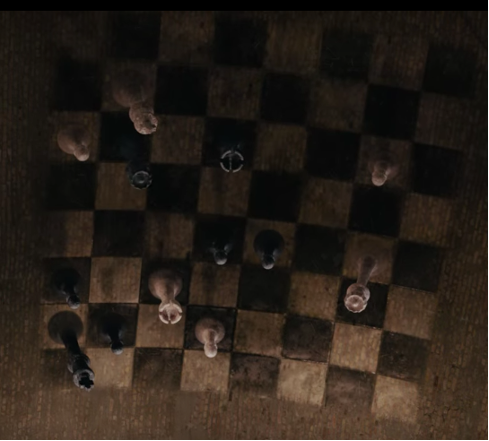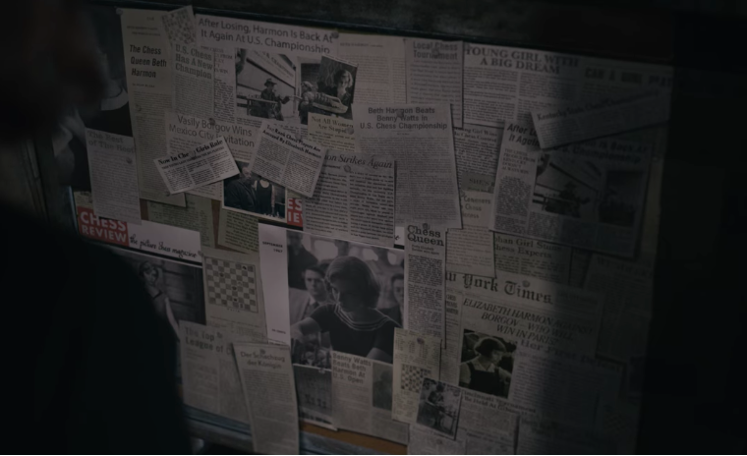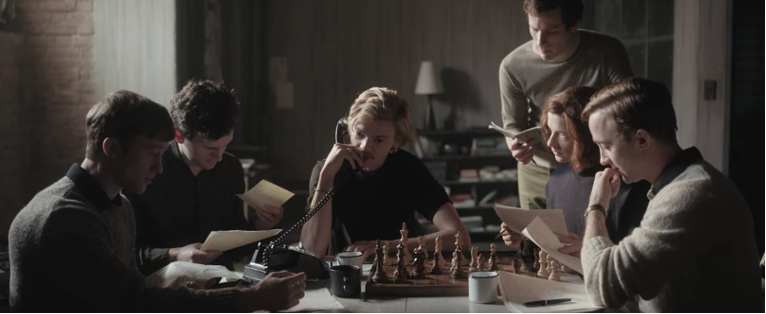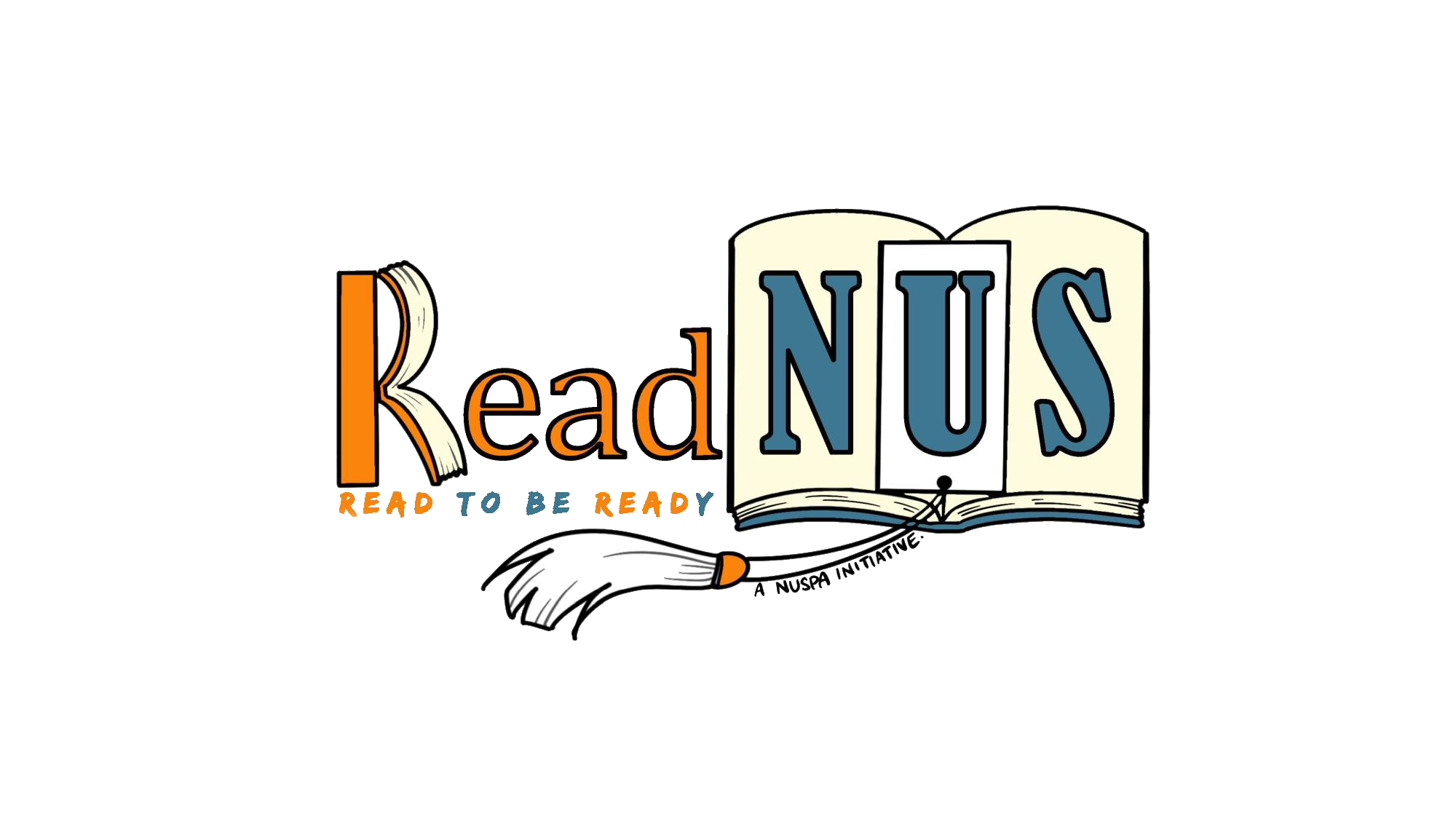The Queens Gambit: A Thematic Analysis
Warning. This article contains spoilers.
On 9th January 2021, ReadNUS held its 5th Book Club session and had an eventful discussion of the Netflix mini-series The Queen’s Gambit. The mini-series by Scott Frank, based on the novel of the same name by Walter Travis, is a mesmerising portrayal of loss, addiction, loneliness, and control.
From the beginning of the series, it becomes apparent that Beth struggles with addiction and is mentally distressed. Her addiction can be attributed to many reasons. Beth believes that she needs tranquilliser pills in order for her to excel at chess. Her belief generally stems from the fact that chess as well as the pills enter her life at the same time. After surviving the car crash that killed her mother, she goes to live in the Methuan Orphanage, where the authority figures give her tranquilliser pills. In this episode, Beth meets Mr Shaibel, who introduces her to the game, albeit reluctantly. Beth feels that she needs clarity to excel at chess. Her reliance on the pills to attain clarity is seen repeatedly till the very end. It is only in the last match against Borgov that Beth flushes her pills down the toilet and visualises chess spatially without help from the pills.

Apart from her belief that she needs the pills to win, Beth has also seen her mother lead a troubled life with her own addictions. Alice Harmon, like her daughter, is brilliant and has a Doctorate in Mathematics. While being addicted like her mother is something that bothers Beth, she never really deals with it till the last episode. Lastly, her addiction also stems from the loneliness that she often feels.
Connected to theme of addiction, the issue of loneliness constantly reappears. Coming back to the interview with Life in the third episode, in response to the interviewer’s question on loneliness, Beth replies, “I’m fine being alone.” Her response is largely true. Beth is alright being alone, but she also craves for good relationships with others. Throughout the series, one cannot help but notice how Beth is lonely yet scared to reach out to others. Her predicament largely stems from losing the people whom she loves. Her mother commits suicide and her father abandons them. During their trip to Mexico City, Alma connects with her pen pal and leaves Beth. Her mother leaving her to spend time with her boyfriend is seen to be distracting and frustrating. Alma, whose health has been problematic from the beginning, dies during Beth’s first loss against Borgov, the World Chess champion. Beth is once again alone. When Beth invites Harry to stay over at her place, it is mostly for the sake of his companionship. When Beth goes to Paris, she meets Cleo. Her desire for companionship results in her night with Cleo, bringing Beth to the greatest downfall she has had, both in her loss against Borgov and her addiction. When she returns to Kentucky after her defeat in Paris, she neglects herself and goes on a downward spiral in her addiction which is partly attributed to her loneliness.
However, not all is bad. As the series concludes, Beth is no longer lonely or dependent on alcohol and drugs Beth’s reunion with Jolene helps her significantly as Jolene sponsors her to travel to Russia to compete against Borgov. Most importantly, attending her first chess mentor Mr Shaibel’s funeral, was an extremely important event for Beth. Beth learns that Mr Shaibel had followed her and cared for her, even though she never bothered to thank him, or return him his ten dollars.

This event serves as an important wake up call for her to handle her addiction. In some sense, Beth also feels less alone at this point, knowing that she has friends and someone who deeply cared about her. As she goes to play in the championship, Townes, Beth’s first crush, comes to Russia to cover the story and help her. Her friends whom she previously defeated in other chess tournaments also help analyse her game against Borgov.

The theme of control and the lack of it through her addiction is dominant through the entire series. Beth has very little agency in the early parts of her life when she loses her mother and moves into the orphanage. Chess gives her a chance to be in control. In the third episode of the series “Doubled Pawns,” Beth gives a media interview with Life, where she notably refers to chess as “an entire world of just 64 squares” where she “feel(s) safe in it” and “can control” and “dominate it, and it’s predictable.” Apart from her ability to control the pieces, her money from chess winnings allows her to exercise more agency in her life. Her increasing independence is visible through her change in clothing from plain clothes to extremely fashionable clothing. Beth’s need to control her own identity is also apparent throughout the series. People seem to love placing inaccurate labels that she needs to refute. The media constantly refers to her as a skilled female chess player. With the press, her gender appears to be at the forefront of her identity rather than her skill. The Christian Crusades who want her to promote their cause for them are desperate for her to identify as a Christian and an anti- communist. As The Queen’s Gambit occurs during the Cold War, the American security personnel who accompanies her to Russia views her as a symbol against the Russians. Despite the identities that people give her, she knows who she is: a girl who loves to play chess. Thus, the series comes to a satisfying conclusion where Beth goes to play chess at a park in Russia with elderly chess players who share her love for the game.

By Preeteashwari Jeyaseelan
ReadNUS Events Team
If you missed our discussion on the Queen’s Gambit, it’s alright! Follow us on our ReadNUS Instagram to catch our next edition of the Book Club in February. Hope to see you there!
